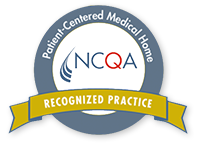Why Is It Important for a Pregnant Woman to See an Obstetrician?
Pregnancy is one of the most exciting and transformative experiences in a woman’s life. As soon as a woman discovers she is pregnant, it’s crucial that she starts receiving the appropriate care and guidance from a skilled healthcare professional. This is where an obstetrician comes into play. An obstetrician is a medical doctor who specializes in managing pregnancy, childbirth, and the postpartum period. At Mid-Carolina OBGYN, offering expert Obstetrics & Gynecology in Raleigh, our team of experienced obstetricians is here to provide comprehensive care, support, and medical guidance throughout your pregnancy.
Why It’s Important for a Pregnant Woman to See an Obstetrician
Pregnancy is a time of many physical and emotional changes. Seeing an obstetrician in Raleigh early in your pregnancy helps ensure that both mother and baby are well cared for. Here are a few reasons why it’s important to have an obstetrician involved from the moment you discover you’re pregnant:
1. Early Monitoring and Health Assessment
One of the primary roles of an obstetrician is to monitor the health of both the mother and the baby. A pregnancy involves numerous physical changes, and an obstetrician can help track the progress of these changes to ensure that both you and your baby are doing well. Early assessments typically include:
- Confirmation of Pregnancy: While a home pregnancy test can confirm pregnancy, an obstetrician will perform a blood test or ultrasound to ensure the pregnancy is progressing normally.
- Health History Evaluation: Your obstetrician will review your medical history to identify any preexisting conditions that might affect your pregnancy, such as diabetes, hypertension, or thyroid issues. If necessary, your obstetrician will develop a plan to manage these conditions throughout your pregnancy.
- Genetic Testing: For women who are at higher risk for certain genetic conditions, your obstetrician can provide guidance on whether genetic counseling and screening are appropriate. These tests can help identify potential risks and offer early intervention options.
2. Monitoring Baby’s Development
One of the key roles of obstetrics care is to ensure that the baby is developing properly throughout pregnancy. Your obstetrician will monitor your baby’s growth with regular ultrasounds, screenings, and fetal heart rate checks. This monitoring helps detect potential problems early, allowing for timely intervention if needed.
- Ultrasounds: These are commonly done throughout pregnancy to monitor the baby’s development and check for any abnormalities in the placenta or amniotic fluid.
- Fetal Heart Monitoring: Regular checks on your baby’s heart rate can provide valuable insights into their overall health and well-being.
3. Providing Education and Guidance
Pregnancy brings many questions and concerns, especially for first-time mothers. Your obstetrician will be there to provide reliable, evidence-based advice on various topics, including:
- Nutrition: What foods to eat, what to avoid, and the importance of a healthy diet to ensure both mother and baby are well-nourished.
- Exercise: The types of physical activity that are safe and beneficial during pregnancy.
- Labor and Delivery: Educating you on what to expect during labor, different pain management options, and how to prepare for childbirth.
- Postpartum Care: Helping you understand what happens after delivery, including managing physical recovery and emotional health.
4. Managing Complications
Pregnancy is a natural process, but it can also come with complications that require medical attention. Having an obstetrician by your side can help prevent or manage complications such as:
- Gestational Diabetes: High blood sugar that develops during pregnancy can affect both the mother and the baby. Early detection and management through your obstetrician can ensure a healthy outcome for both.
- Preeclampsia: This condition, characterized by high blood pressure, can be dangerous for both the mother and the baby. Regular monitoring by an obstetrician helps identify and manage it early.
- Preterm Labor: If labor starts too early, your obstetrician can intervene with medications or other treatments to help delay delivery and ensure the baby’s lungs and organs are fully developed.
5. Delivery and Postpartum Care
Your obstetrician is your trusted healthcare provider during labor and delivery. Whether you have a natural birth, opt for an epidural, or need a cesarean section (C-section), your obstetrician will be there to guide you through the process, ensuring the safety and health of both you and your baby. Additionally, your obstetrician will provide postpartum care to support your physical recovery, breastfeeding, and emotional health after birth.
What Is Prenatal Care?
Prenatal care refers to the medical care provided during pregnancy to ensure the well-being of both the mother and the baby. This care includes regular check-ups, screenings, and tests that monitor the progress of the pregnancy. Prenatal care is crucial for preventing complications, managing existing conditions, and preparing for a healthy delivery.
The Importance of Prenatal Care
- Prevents complications: Prenatal visits allow your obstetrician to monitor your health and the baby’s development, catching any potential problems early.
- Provides education: Prenatal visits are a great opportunity to ask questions, get advice on lifestyle changes, and learn about the pregnancy process.
- Personalized care: Prenatal care is tailored to meet your unique needs. If you have a high-risk pregnancy or any medical conditions, your obstetrician will adjust your care plan accordingly.
What Happens During Prenatal Care Visits?
During each prenatal visit, your obstetrician will check on the progress of your pregnancy and perform routine tests, including:
- Blood pressure checks: To monitor for hypertension.
- Weight measurements: To ensure proper weight gain during pregnancy.
- Urine tests: To screen for protein or sugar in the urine, which can indicate problems like preeclampsia or gestational diabetes.
- Blood tests: To check for anemia, infections, and other potential issues.
- Ultrasounds: To monitor fetal growth and confirm the baby’s position.
- Fetal heart monitoring: To ensure that the baby’s heart rate is healthy.
When Should a Pregnant Woman Start Prenatal Care?
It is recommended that a woman begin prenatal care as soon as she suspects she is pregnant or as soon as she confirms her pregnancy. Early prenatal visits help ensure the pregnancy is progressing well and allow your obstetrician to manage any conditions that may arise.
- First Trimester: Ideally, you should schedule your first appointment within the first eight weeks of pregnancy. Early care ensures that you’re on track with vitamins, nutrition, and lifestyle modifications that will benefit both you and your baby.
- Ongoing Visits: Throughout the pregnancy, prenatal visits are typically scheduled once a month during the first 28 weeks, biweekly from 28 to 36 weeks, and weekly from 36 weeks until delivery. However, the frequency of visits may increase if complications arise.
When to Contact Mid-Carolina OBGYN
If you are pregnant and experiencing any of the following symptoms or concerns, it’s important to reach out to Mid-Carolina OBGYN in Raleigh as soon as possible:
- Severe abdominal pain or cramping
- Heavy bleeding or spotting
- Sudden swelling in your hands, feet, or face
- Severe headaches, vision changes, or sudden dizziness
- Any concerns about your baby’s movement or heart rate
If you’re unsure whether something is normal or require advice, don’t hesitate to call 919-781-5510. Our OB Call Nurse can help triage your concerns and provide guidance, or schedule you for an appointment with one of our Obstetrics & Gynecology in Raleigh experts.















